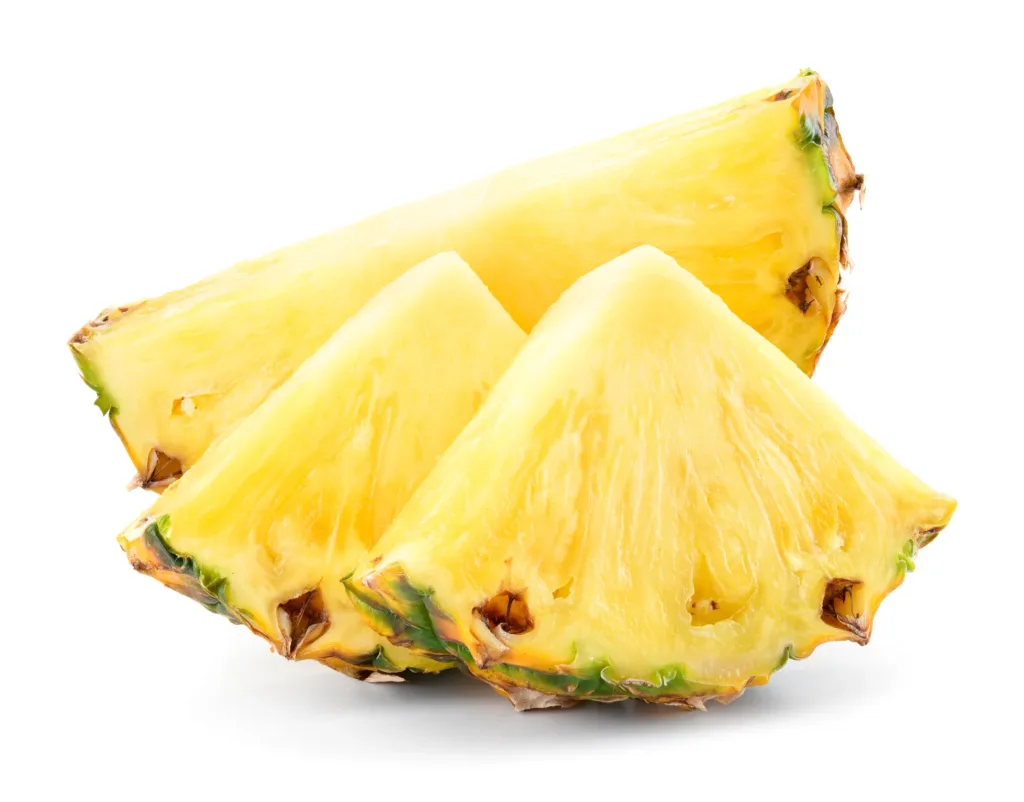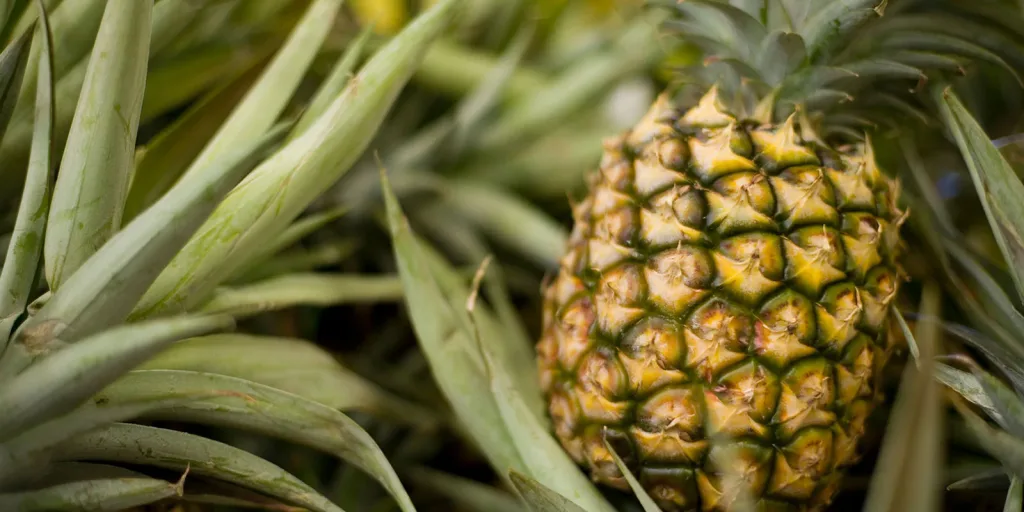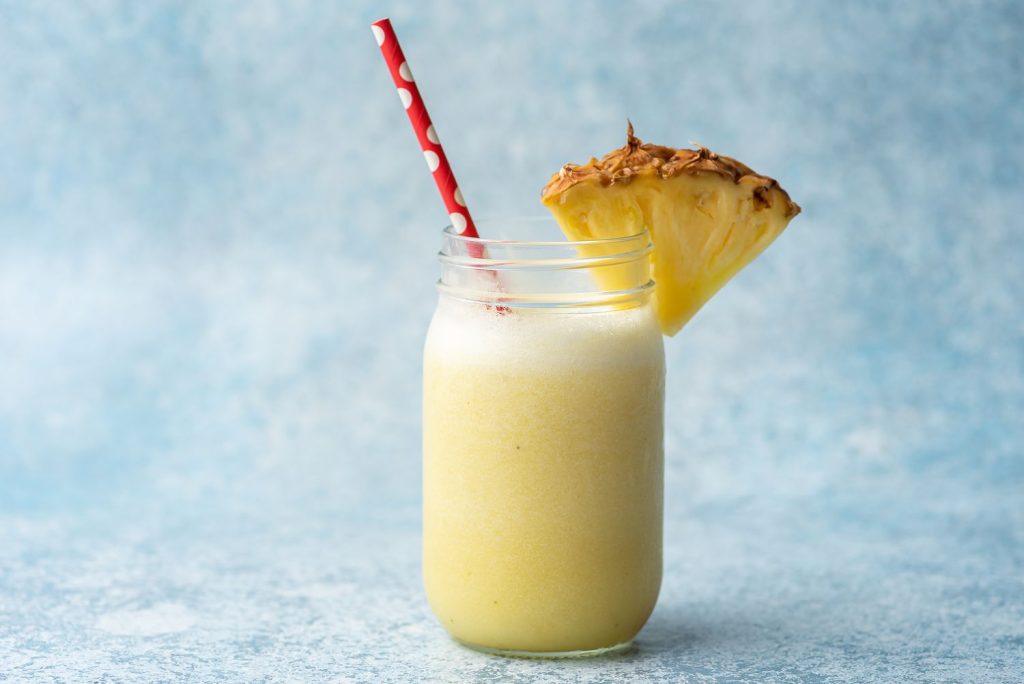Pregnancy often brings about a whirlwind of cravings, and for many, pineapple emerges as a particularly enticing choice. However, despite its delicious taste and nutritional benefits, many expectant mothers find themselves questioning whether indulging in pineapple is safe during pregnancy cravings. Concerns often arise due to myths that pineapple can trigger uterine contractions or affect pregnancy labor. So, is pineapple safe during pregnancy cravings?
This article aims to delve into expert opinions and research findings concerning pineapple consumption during pregnancy. It will highlight the nutritional benefits of this tropical fruit while also addressing potential risks, particularly those associated with bromelain.
Additionally, the article will provide guidance on safe serving sizes and offer some delicious recipes to help incorporate this vibrant fruit into a pregnancy diet.
Explore the content to discover everything you need to know!
The Safety of Pineapple During Pregnancy

Pineapple is a delightful tropical fruit, and many pregnant women may have questions about its safety during this important time. It’s important to recognize that while pineapple is rich in vitamins and minerals, such as vitamin C and folate, there are some considerations to take into account.
Generally, consuming pineapple in moderation is considered safe for most pregnant women. However, staying informed about potential health risks and dietary guidelines is essential for ensuring both maternal well-being and optimal fetal development.
Let’s take a closer look at expert opinions and research findings regarding the safety of pineapple during pregnancy.
Expert Opinions and Research Findings
Experts provide valuable insights into the role of pineapple in a pregnancy diet, highlighting its nutritional benefits and potential risks. Research shows that while pineapple contains bromelain, which can lead to side effects if consumed in excess, moderation is essential for maternal health.
This tropical fruit is abundant in essential vitamins, particularly vitamin C, which is crucial for both the mother and the developing fetus. Several studies point out the beneficial antioxidants found in pineapple, which support immune function and overall well-being during pregnancy.
However, experts advise caution when it comes to consuming large quantities of pineapple due to bromelain. High doses may result in complications such as uterine contractions. Therefore, incorporating pineapple in moderate amounts can provide valuable nutrients without compromising the safety of both mother and baby.
Maintaining a well-balanced diet is vital, ensuring that it includes a variety of fruits, vegetables, and whole grains to adequately meet nutritional needs.
Pineapple Myths and Misconceptions

When it comes to pineapple and pregnancy, a number of myths and misconceptions have spread, causing unnecessary confusion. One common belief is that eating pineapple, especially the core, can induce labor due to its bromelain content, an enzyme that is thought to soften the cervix and cause uterine contractions. While bromelain is present in pineapple, the amount you’d need to consume to have any real effect on labor induction is far beyond what a normal diet includes. Cultural anecdotes often suggest that pineapple can lead to miscarriage or early labor, but there is no scientific evidence to support these claims.
In reality, pineapple is a nutritious fruit that provides important vitamins and minerals during pregnancy without posing any risk to pregnancy labor. Concerns about labor induction methods, including dietary approaches like pineapple consumption, should be based on reliable information, not myths. Always consult healthcare professionals before relying on any natural labor induction techniques.
Nutritional Benefits of Pineapple for Pregnant Women

Pineapple is not only a delightful fruit but also a source of essential nutrients that can provide various benefits for pregnant women. It is rich in vitamins and minerals, including vitamin C, folate, and potassium. These components support immune health, aid digestion, and contribute to overall maternal wellness during pregnancy.
Incorporating pineapple into a balanced pregnancy diet can be advantageous, as it offers necessary hydration and energy through its natural sugars.
Further reading: Craving Cereal During Pregnancy? Here’s Why and Benefits
Key Vitamins and Minerals
Pineapple is truly a powerhouse of essential vitamins and minerals that are vital for maintaining a healthy pregnancy. It contains important nutrients such as vitamin C, folate, and potassium, all of which play significant roles in fetal development, boosting immune function, and supporting maternal health throughout the pregnancy.
Incorporating pineapple into prenatal care can greatly enhance wellness during this time, as it provides a variety of antioxidants that help combat oxidative stress. The high levels of vitamin C in this tropical fruit not only aid in iron absorption but also support collagen formation, which is crucial for developing a healthy placenta.
Folate is another key nutrient that helps reduce the risk of neural tube defects, while potassium plays a role in maintaining fluid balance and alleviating muscular cramps, which many expectant mothers experience. Emphasizing a nutrient-rich diet that includes pineapple can be a delightful and beneficial way to nourish both mother and baby during this important period.
Possible Risks of Eating Pineapple During Pregnancy
Pineapple can certainly be a nutritious addition to a pregnancy diet, but it’s important to be mindful of the potential risks that come with its consumption. One of the main concerns is bromelain, an enzyme that may cause side effects if taken in large quantities.
Moreover, pregnant women with certain food allergies or those facing complications during their pregnancy should be cautious when incorporating pineapple into their diets.
Concerns About Bromelain

Bromelain is an enzyme found in pineapple that has drawn attention for its health benefits as well as its potential side effects during pregnancy. While it can assist with digestion and provide anti-inflammatory properties, consuming excessive amounts of bromelain may result in gastrointestinal issues or other complications.
Individuals considering adding bromelain to their diets should be cautious about serving sizes, as moderation is essential to avoid any undesirable effects. This is especially important during pregnancy, where consulting with a healthcare provider before significantly increasing intake is crucial.
Although this enzyme is often praised for its ability to reduce swelling and enhance recovery, the effects of high doses remain a subject of discussion. Therefore, those looking to reap the benefits of pineapple’s natural properties should approach it thoughtfully, balancing their health goals with awareness of potential risks to ensure a safe dietary practice.
How Much Pineapple is Safe to Consume During Pregnancy?
Determining the appropriate amount of pineapple to consume during pregnancy is crucial for maintaining a healthy nutritional balance. Although pineapple is a nutritious fruit, moderation is important.
It is generally advisable for pregnant women to enjoy pineapple in controlled portions to mitigate any potential risks. When included in a well-rounded pregnancy diet, pineapple can offer essential nutrients while ensuring that consumption remains within safe limits.
Further reading: Grape Cravings While Pregnant: Safe or Not?
Recommended Serving Sizes
In terms of enjoying pineapple during pregnancy, understanding the recommended serving sizes is essential for safe consumption. Generally, aiming for about 1 cup of fresh pineapple chunks a few times a week serves as a safe guideline. This way, you can enjoy its health benefits without overindulging.
It’s also important to consider how this vibrant fruit can fit into a balanced diet. To maximize its nutritional value, it is advisable to choose fresh pineapple over canned varieties, which often come with added sugars.
Plus consuming it raw, pineapple can be a delightful addition to smoothies or fruit salads, adding a tropical flair to your healthy snacks. Chopping pineapple into bite-sized pieces and pairing it with Greek yogurt or cheese creates a nutritious and enjoyable snack.
Roasting pineapple slices can enhance their natural sweetness, making them a unique complement to savory dishes like grilled chicken or seafood, all while providing flavor and essential nutrients.
Tips for Incorporating Pineapple into a Pregnancy Diet
Incorporating pineapple into a pregnancy diet can be both delightful and nutritious. It offers a burst of flavor and comes with numerous health benefits. Whether in smoothies or fresh fruit salads, there are various ways to enjoy pineapple that can enhance healthy eating habits during pregnancy.
Healthy and Delicious Recipes

Creating healthy and delicious recipes with pineapple can enhance your pregnancy diet, making it both enjoyable and nutritious. Whether you lean towards pineapple smoothies or fruit salads, adding this tropical fruit can significantly increase your intake of essential vitamins and minerals.
These recipes cater to a variety of tastes while also supporting overall wellness during pregnancy. For example, a refreshing pineapple smoothie can be a quick and nutritious breakfast option, packed with vital nutrients like vitamin C and folate, which are crucial for both the mother and the baby.
On the other hand, grilled pineapple can provide a sweet twist to savory dishes, elevating flavors while also offering digestive benefits. By incorporating pineapple in various culinary forms, expectant mothers can indulge in delightful dishes that promote their health, making mealtime both enjoyable and advantageous.
Frequently Asked Questions
Is Pineapple Safe During Pregnancy Cravings?
Yes, pineapple is generally safe to eat during pregnancy, but in moderation.
What makes pineapple safe during pregnancy?
Pineapple is a great source of nutrients and vitamins like vitamin C and folate, which are important for a healthy pregnancy.
How much pineapple can I eat during pregnancy?
It is recommended to limit your pineapple intake to one cup per day, as it contains a high amount of sugar and can cause digestive issues when consumed in excess.
Can pineapple cause any harm during pregnancy?
In large amounts, pineapple can stimulate contractions and potentially lead to early labor. It is important to only consume it in moderation.
Is there a specific type of pineapple that is safer to eat during pregnancy?
Fresh, ripe pineapple is the best option during pregnancy. Avoid canned pineapple, as it often contains added sugars and preservatives.




